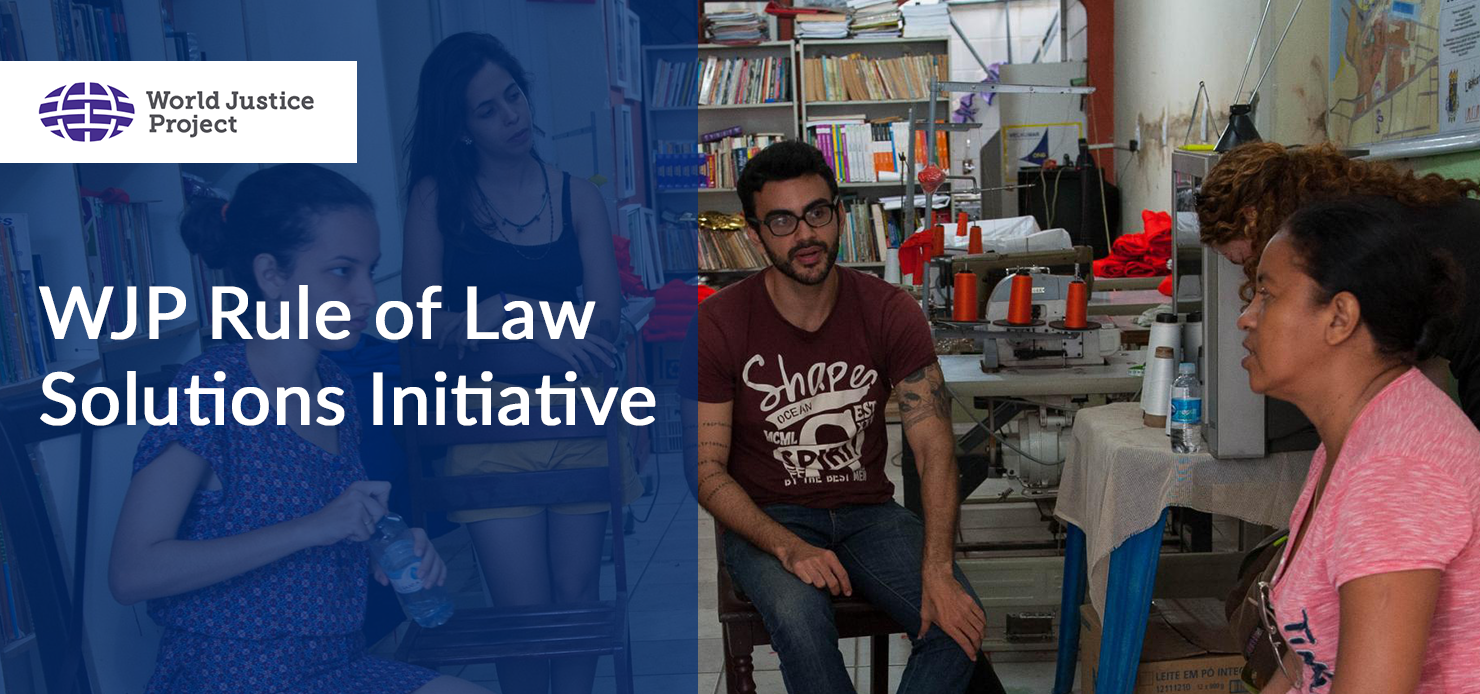

WJP's Rule of Law Solutions Initiative is an SDG Acceleration Action committing to documenting and sharing good solutions for strengthening the rule of law around the world.
Fulfilling the SDG 16.3 global commitment to promoting the rule of law and ensuring equal access to justice for all demands greater knowledge about effective local and national approaches to strengthening the rule of law. To meet this demand, WJP has launched the Rule of Law Solutions Initiative, which will document the experience of practitioners and experts working to strengthen rule of law in their communities and the lessons learned that can be shared among them. WJP's Rule of Law Solutions Initiative will survey, document, communicate, and promote good practices for strengthening the rule of law, with a special focus on access to justice. The Rule of Law Solutions Initiative will rely on WJP's global network of justice practitioners as well as an expanded version of its Resource Hub, a free online database of more than 2,500 programs and organizations working to promote the rule of law around the world.
In addition, WJP will use its comprehensive communications toolkit to disseminate practical solutions to the rule of law and access to justice community. Programs and approaches showcased through the Initiative will be invited to compete in the World Justice Challenge, a competition to identify, recognize, and promote good practices and effective policies that advance the rule of law. The results of the Solutions Initiative will also be featured at its biennial World Justice Forum, where global and community leaders from an array of sectors gather to share insights, explore strategies, and develop solutions for advancing justice, opportunity, and peace. The Rule of Law Solutions Initiative operates within the Engagement team at the World Justice Project, where it is managed by an ACLS/Mellon Public Fellow and overseen by WJP’s Chief Engagement Officer and Executive Director. It is subject to external reporting requirements with the Director of Public Programs at the American Council of Learned Societies, which is responsible for administering funds for the ACLS/Mellon Public Fellowships.
Expected Impact
Global attention to the rule of law and access to justice, sparked by its inclusion in Sustainable Development Goal 16, as well as diagnostic measures such as our WJP Rule of Law Index© and Global Insights on Access to Justice surveys, has generated increased demand for information about effective approaches to strengthening the rule of law. When it comes to solving specific rule of law problems, what works? This initiative will accelerate SDG 16 implementation by providing governments and other implementing organizations with research, documentation, and lessons learned from both established and emerging approaches to advancing the rule of law. WJP’s person-centered, narrative methodology will illuminate potential links between SDG 16 and related SDG goals such as poverty reduction (Goal 1), gender equality (Goal 5), decent work (Goal 8), and reduced inequality (Goal 10).






